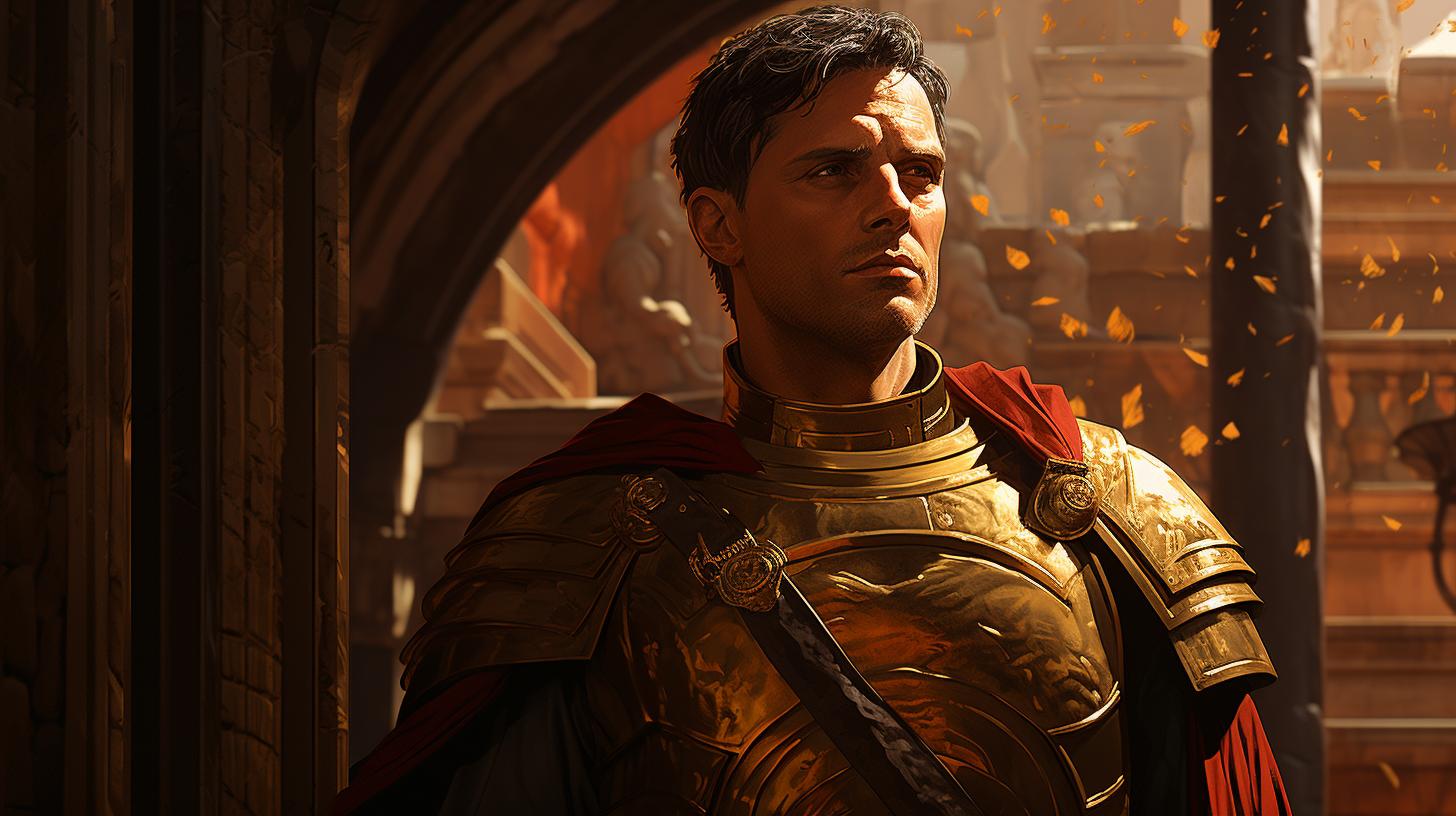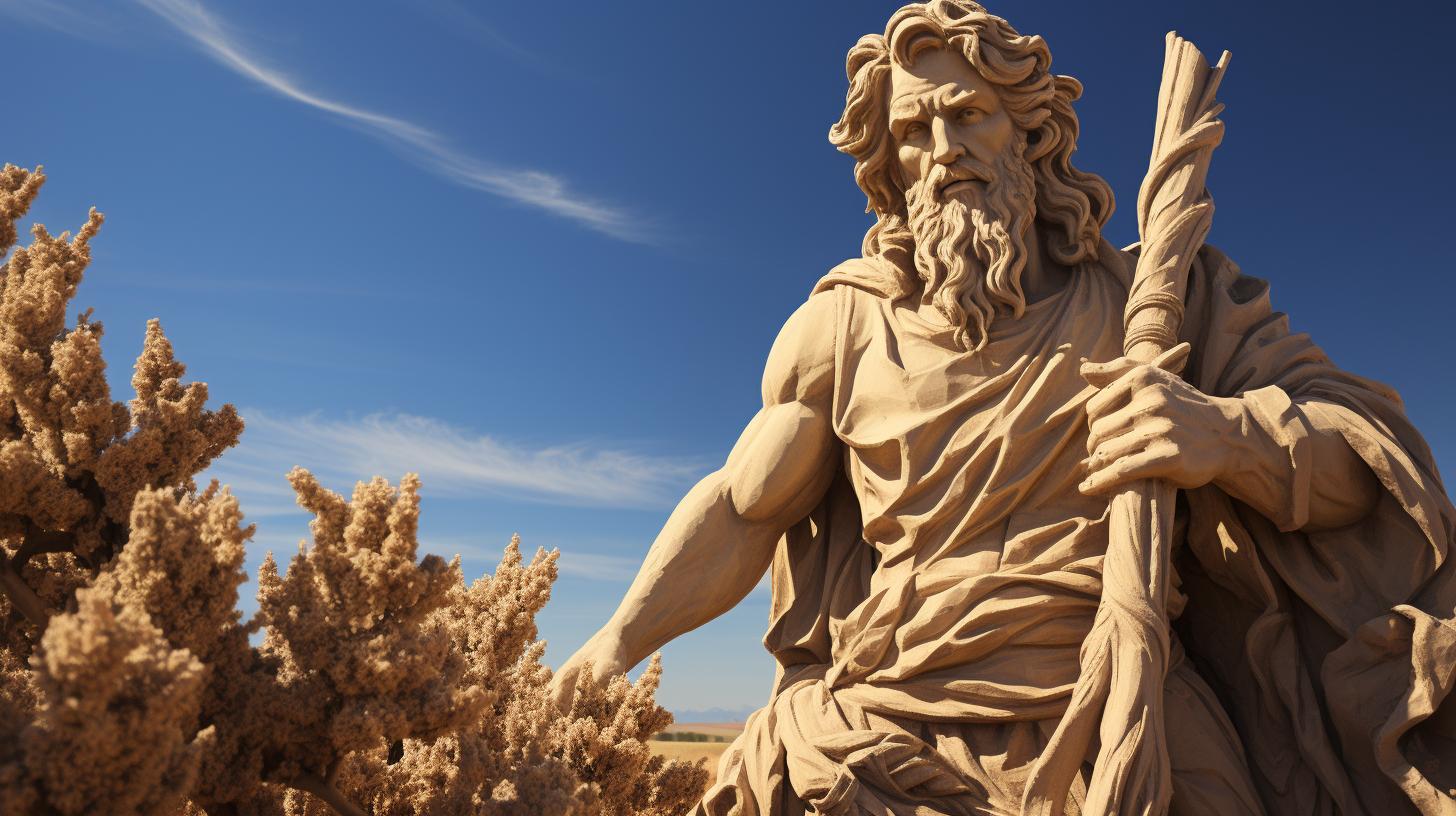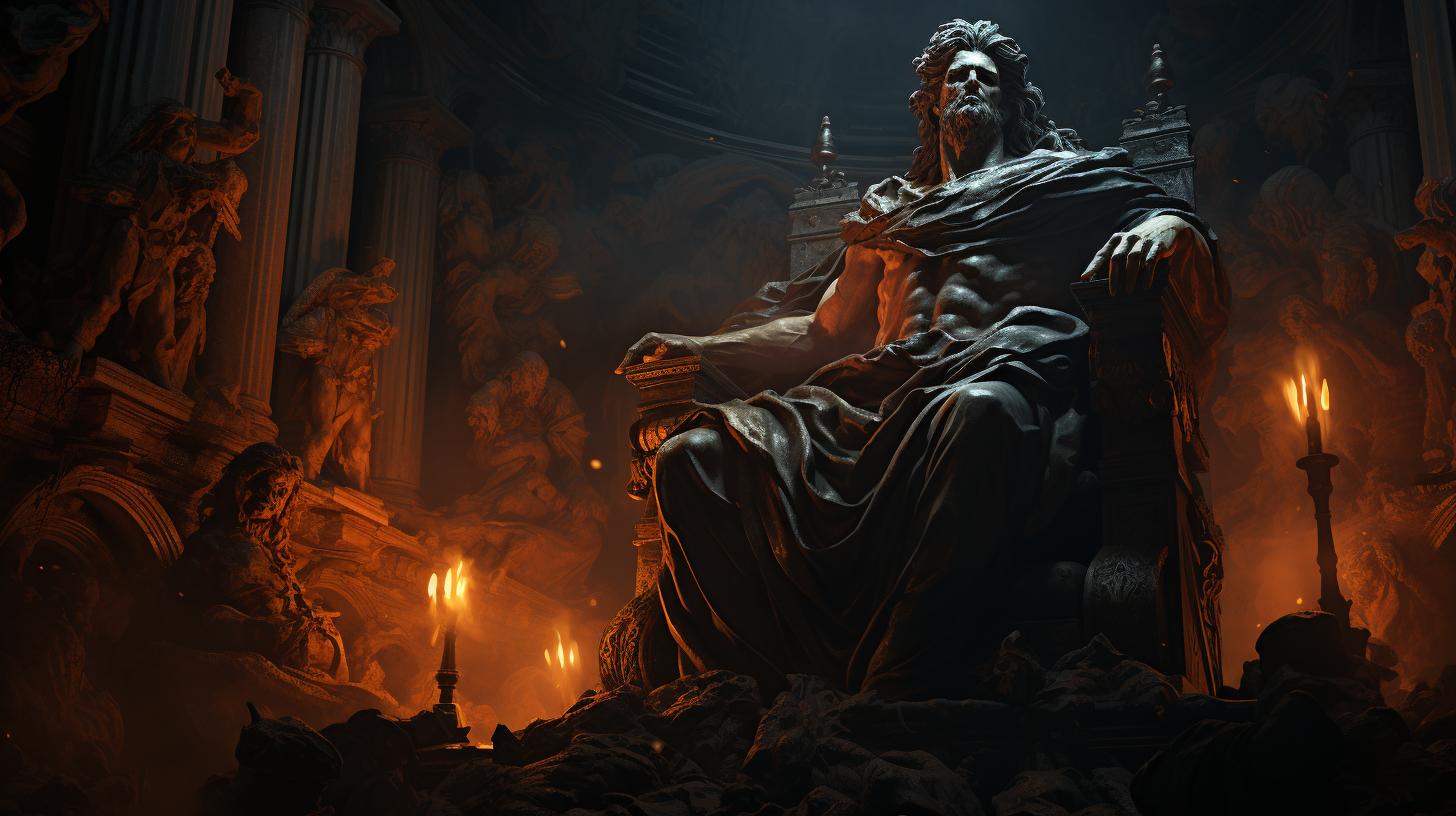Roman God Janus: Unveiling the Power and Significance of the Ancient Deity

Janus, the Roman god of beginnings and transitions, holds a significant place in ancient mythology and religion. With his distinguished portrayal of two faces, one looking to the past and the other to the future, Janus symbolizes the doorways and gateways of life.
January, the first month of the year, is named after this ancient deity. Explore the fascinating world of Janus as we delve into his mythology, roles in ancient Roman culture, interactions with other gods, and his enduring legacy in art, architecture, and modern perspectives.
Who is Janus?
Janus, the ancient Roman god, holds immense significance in Roman religion and mythology. This section delves into the rich mythological background surrounding Janus and explores his role in both Roman and Greek cultures.
The Mythology of Janus
Janus is a revered deity associated with beginnings, endings, and transitions. According to mythology, he predates the foundation of Rome and is believed to have originated during the time of Rómulo.
Unlike other gods, Janus does not have a direct counterpart in Greek mythology.
Janus in Roman Religion
In Roman religion, Janus was highly venerated as the god of doors, gateways, and passages. Considered the guardian of entryways, Janus played a crucial role in the daily lives of Romans.
People would invoke and offer sacrifices to Janus before any other deity, as they believed he held the power to connect them with other gods and goddesses.
Janus in Greek Mythology
While Janus doesn’t have a direct parallel in Greek mythology, some scholars draw connections between Janus and the Greek god Apollo. Both deities share similar attributes associated with transitions and doorways.
However, it is important to note that Janus maintains his unique role and individuality within Roman mythology.
As we continue to explore Janus, we will delve into his role as the god of beginnings and transitions, his symbolism through his distinctive dual-faced representation, his association with the New Year, and his profound influence on ancient Roman culture and society.
Janus: God of Beginnings and Transitions
Janus, the esteemed Roman god, holds a prominent role as the deity of beginnings and transitions. This section delves into the various aspects that define Janus’ divine identity, exploring his associations with doors, gateways, and the New Year.
Janus as the God of Doors and Gateways
Janus assumes a crucial role as the god of doors and gateways in ancient Roman mythology and religion. As the eternal guardian of entrances, he embodies the significance of thresholds and transitions in human life.
Worshipped for his ability to facilitate safe passage and protect doorways, Janus symbolizes the transformative experiences that occur when crossing physical, metaphorical, or spiritual thresholds.
The Symbolism of Janus’ Two Faces
One of the most recognizable aspects of Janus is his dual-faced representation, with one visage looking towards the future and the other gazing into the past. This symbolic depiction emphasizes Janus’ unique position as the god who presides over both endings and beginnings.
The duality of his countenance mirrors the complex nature of transitions, reminding us of the intricate interplay between past and future, and the perpetual cycle of time.
Janus and the New Year
Janus’ connection to the New Year is profound, as he symbolizes the transition from one year to the next. In Roman culture, the month of January, which derives its name from Janus, marked the initiation of the new annual cycle.
Janus’ presence was invoked during this time to seek his blessings and guidance for a successful transition into the coming year. His association with beginnings makes him a significant figure during this celebratory period of renewed hope and resolutions.
Overall, Janus’ multifaceted role as the god of beginnings and transitions showcases his importance in Roman mythology and culture. Through his association with doors, gateways, and the New Year, Janus encapsulates the essence of new beginnings and the transformative power of transitions.
Janus in Ancient Roman Culture
Janus played a significant role in the culture of ancient Rome, leaving an indelible mark on its history, calendar, and society.
.
Janus in Roman History
Janus holds a prominent place in Roman history, with his worship dating back to the foundation of Rome by Romulus. His presence and influence can be traced through various historical events, symbolizing the pivotal moments and transitions that shaped the Roman Empire.
Janus and the Roman Calendar
The Roman calendar was intricately connected to Janus, reflecting his association with beginnings and endings. The first month of the year, January, bears his name and marked the beginning of a new year for the Romans.
This connection demonstrates the significance of Janus in the passage of time and the cyclical nature of life.
Janus’ Role in Ancient Roman Society
Janus held a vital role in ancient Roman society, symbolizing the importance of boundaries, transitions, and the establishment of order. As the god of doors and gateways, he protected the city and its people from both external threats and internal conflicts.
Janus’ presence was deeply ingrained in Roman customs, rituals, and social structures, emphasizing the importance of smooth transitions and the maintenance of societal balance.
- Janus stood as a guardian at the threshold of each new endeavor, ensuring its successful beginnings and facilitating smooth transitions.
- He was invoked during important life events such as births, marriages, and the inauguration of public offices, symbolizing the need for his guidance and blessings in the journey ahead.
- The Romans offered sacrifices to Janus as a sign of respect and to seek his favor before approaching other deities, acknowledging his status as the “god of gods”.
- Janus’ association with gates and doors extended beyond the physical realm, encompassing the metaphorical gateways of time, knowledge, and opportunities.
Overall, Janus played a vital role in ancient Roman culture, shaping their understanding of transitions, beginnings, and maintaining societal order.
His influence permeated various aspects of Roman life, leaving a lasting legacy that continues to resonate in contemporary perspectives.
Janus and the Other Roman Gods
Janus and His Relationship with Other Deities
Janus, the revered Roman god of beginnings and transitions, held a unique position among the Roman pantheon. As the god of doors and gateways, Janus served as the intermediary between the mortal realm and the divine world.
His significance extended beyond his role as the god of beginnings, as he also played a crucial part in forging connections between other Roman deities. Janus was often invoked and offered sacrifices before any other gods, symbolizing his status as the gatekeeper of heaven and the bridge between the divine and human realms.
Janus’ Importance among the Roman Pantheon
Among the Roman gods, Janus enjoyed a position of great prominence and veneration. Unlike other deities, Janus didn’t have a direct counterpart in Greek mythology, further accentuating his unique stature within the Roman pantheon.
His association with beginnings and transitions made him an essential figure in Roman religious rituals and ceremonies, particularly during the dawn of a new year or the inception of important endeavors.
The Romans regarded Janus as a powerful and wise god, revered as the bringer of order and structure to human society.
Janus’ Connections to Key Roman Divinities
Janus’ role as the bridge between mortals and gods allowed him to establish connections with several key Roman divinities. One notable association is with Jupiter, the king of the gods.
Janus and Jupiter were often depicted together, emphasizing the importance of their complementary roles within the Roman religious framework. Janus’ connections also extended to other gods like Mars, god of war, and Vesta, goddess of the hearth, symbolizing his influence in both the military and domestic spheres of Roman life.
The Legacy of Janus
The god Janus left an indelible mark on ancient Roman art and architecture, as well as contemporary culture and modern perspectives. Let us explore the various aspects of Janus’ legacy in these realms.
Janus in Ancient Roman Art and Architecture
Janus’ depiction with his two faces had a significant influence on ancient Roman art and architecture. His symbolism of transitions and dualities was incorporated into various sculptures, reliefs, and architectural elements throughout the Roman Empire.
The most notable representation is Janus’ portrayal on the Janus Arch, a monumental gateway featuring his faces on both sides, symbolizing the beginning and the end of a journey.
Janus in Contemporary Culture
The legacy of Janus extends beyond ancient times and continues to inspire contemporary culture. His concept of transitions and new beginnings resonates with people seeking personal transformations and embracing change.
Janus is often referenced in literature, music, and visual arts as a symbol of duality, choices, and the navigation of life’s complexities.
Janus’ Influence on Modern Perspectives
Janus’ unique nature as a god of doors and gateways, dwelling in the past and the future simultaneously, has had a profound impact on modern perspectives. It serves as a reminder of the multidimensional nature of time and the importance of reflection and foresight in decision-making and planning.
Janus’ symbolism encourages individuals to embrace ambiguity, accept change, and approach life’s transitions with an open mind and adaptability.
In conclusion, the legacy of Janus extends beyond ancient Roman mythology. His significance in art, architecture, and contemporary culture, as well as his influence on modern perspectives, solidifies Janus’ role as an enduring symbol of transitions and new beginnings.
…



















